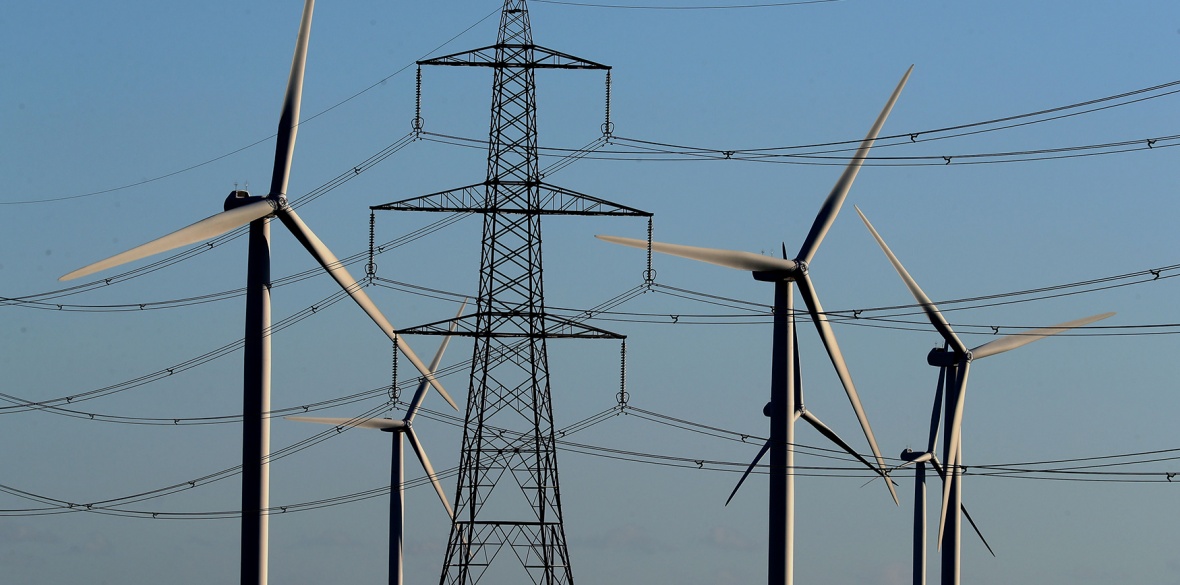This is the last article you can read this month
You can read more article this month
You can read more articles this month
Sorry your limit is up for this month
Reset on:
Please help support the Morning Star by subscribing here
THERE are countless ways in which the majority of people in Britain are ripped off, and there can be fewer more glaring examples than the scandalous state of the energy sector.
With the most recent government figures from 2019 already showing over three million households living in fuel poverty, we are now faced with soaring gas prices and huge numbers facing uncertainty over the future of their provider — with several having already gone bust and yet more hanging on by a thread.
Like so many problems facing millions of people in this country, the roots of the current fiasco can be found in the Thatcherite privatisation frenzy: with British Gas, the National Grid, Scottish Powergen and 12 regional energy companies in England and Wales all falling victim to the “Great Tory Sell-Off.”
Far from this encouraging competition that would mean better deals on offer to consumers, as was claimed at the time, households have faced a series of intense price hikes — with average annual gas bills virtually doubling between 2004 and 2014.
As per usual, letting the market run riot has left ordinary people meeting the cost.
This situation is even more outrageous when compared with how energy systems across the rest of the world are run.
In a recent column for this paper I discussed the significance of the first anniversary of the Movement For Socialism retaking office in Bolivia, where progressive administrations have taken radical measures to ensure the sector operates in the interests of the people.
But even in the rest of Europe, one only has to look at the fact that Germany, France and Italy, despite by no means having particularly left-leaning governments in recent years, all have state-owned companies providing energy to at least two-thirds of their populations.
Even in the US, individual states were given the option to carry on maintaining a public supplier — an opportunity that I would have loved to have been able to take in my time running London!
Los Angeles, for instance, has 100 per cent of its energy provided by the LA department of water and power, and has been able to avoid the problems with supply seen in other parts of the country, as well as being one of the leading states on transferring to renewables.
Looking at these examples, it’s not surprising that there is little sense of regret in places which decided state providers were worth hanging on to.
The complete lack of any serious action on this issue is a clear example of just how hollow the claims of Boris Johnson to champion the interests of those “left behind” by the last 40 years of Britain’s economic model are.
Contrary to his remarks at Tory conference declaring that the government was intent on “dealing with the biggest underlying issues of our economy and society that no government has had the guts to tackle before,” the Conservative Party has absolutely no desire to introduce any measures which prioritise those being squeezed over the corporate interests they exist to uphold.
Sadly, in a recent interview with Andrew Marr, Keir Starmer confirmed he would not support calls for public ownership of energy — despite shadow secretary of state for business, energy and industrial strategy Ed Miliband having declared his backing, and Starmer himself having explicitly pledged to continue the commitment to nationalised utilities that Labour adopted under Jeremy Corbyn when he was running to be his successor as leader.
However, delegates at last month’s Labour Party conference subsequently voted overwhelmingly in favour of a public ownership policy — showing that grassroots members and trade unionists are all too aware of the urgent need to end the con of privatisation. They are absolutely right to resist attempts to water down this stance.
And polling evidence suggests that they are the ones in touch with public opinion on the matter.
A few weeks ago Opinium found that 53 per cent of voters expressed support for renationalisation, with just 15 per cent opposed.
Despite the fact that even a modest cap on prices proposed by Ed Miliband’s leadership was met with bizarre howls about Marxism from the ring-wing press (not to mention now former Change UK MP Chris Leslie), people across the country can clearly see that the current model has completely failed them: and a bold common sense alternative has an enormous potential audience.
It’s hugely important that we support the great work of organisations like We Own It in exposing and campaigning to end privatisation which has let down so many, and build support in the labour movement for an an energy policy based on public ownership: which can help to both protect the future of our planet and meaningfully address the cost-of-living crisis affecting millions of lives.
The case for real change keeps growing stronger and stronger — let’s make sure it’s heard loud and clear.
You can follow Ken at www.twitter.com/Ken4London and www.facebook.com/KenLivingstoneOfficial.











